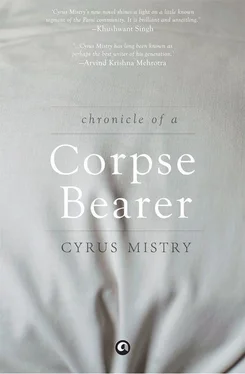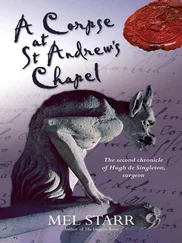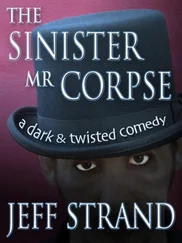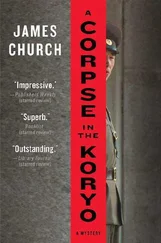He had already been speaking for nearly half an hour. These, we guessed, were his concluding remarks:
‘That’s why we have to trust one another. We are all followers of the same religion. And our religion, the oldest and most influential in the history of mankind, clearly lays down all our rights and duties — not just yours as corpse bearers, but ours, too, as your guardians. And in the perspective of not just the here and now, but in the context of eternity, and all-powerful Ahura Mazda. . So let us not be hasty, let us not behave like ordinary rabble-rousers and undisciplined trouble-mongers. Someone may have misguided you, I’m sure. But if you choose to follow such negative advice, it’ll only bring us to ruin. Never once in the hundred-and-fifty-year-old history of the Punchayet, has anyone raised such demands, remember that. .’
Not a single concession was granted to us, even just to mollify or appease — except to proclaim that our grievances would definitely be looked into in greater detail.
Already humiliated by the events of the last fortnight, the boys were not impressed by the high moral ground taken by Coyaji, nor the syrupy pap he had just dished out. We were on our best behaviour, of course — no one heckled him, or argued during his discourse. But, as soon as he had left, another meeting took place, a great deal livelier, on Rustom’s terrace. Coyaji’s polemical efforts had only made everyone more determined not to let things quietly return to the way they were.

And yet, given the way poor people generally tend to accept their lot as unchanging, and unchangeable, it is quite likely they would have. Reverted to ‘normalcy’, that is, had the trustees handled the situation a little more sensitively.
The next week or ten days were eventful, possibly the busiest we had known. I don’t mean just with our regular duties. Those proceeded as usual, of course — and the number of corpses had definitely gone down in recent days — but there was the matter of Jungoo Driver.
Poor Jungoo. . It had been only three days since he had got back behind the wheel again of a more or less functional hearse. This was of course a great boon to us corpse bearers who, otherwise, would have been trudging along for several hours every day lifting the load of corpse and bier. But our luck — and Jungoo’s — didn’t hold out. On the very fourth day after he had started driving it again, a BEST bus rammed diagonally into the driver’s end of the hearse, nearly toppling it. Jungoo suffered two minor fractures and many abrasions. His condition wasn’t serious, and luckily, Bujji and Kobaad were with him.
Winding through the narrow streets of Girgaum to collect a corpse, the accident happened before they could reach the bereaved party’s address; so in its aftermath, they were not burdened with the responsibility of protecting a corpse. The driver of the BEST bus was arrested by the cops for drunken driving, and Bujji and Kobaad got Jungoo admitted to the Parsi General Hospital.
Much later, that evening, on the day of the accident, I was at Rustom’s when a deeply agitated Cawas stumbled in. Cawas, or Cowsi, as we called him, was Jungoo’s elder brother, a corpse bearer of many years’ standing. That night, he looked suddenly older and somewhat stunned as if suffering the effects of concussion; as though he had himself been driving the battered hearse, not his younger brother.
‘He won’t get a paisa, that’s what he says. . Imagine! Not a paisa!’
Cawas was nearly in tears. Apparently, he had just met Buchia to ask him for an advance towards defraying Jungoo’s hospital expenses. Buchia had been impatient and ill-tempered, deliberately sadistic.
‘Of course not,’ said Rustom. ‘If you expect Buchia to shell out anything from his own pocket you’re sadly deluded! A bloody miser, if ever there was one.’
‘No, no!’ spluttered Cowsi, unable to speak clearly. ‘Buchia said he’d spoken to Coyaji. In the afternoon — after the accident— by phone. “Can’t pay for careless driving,” he tells me.’
‘Who? Buchia?’ I asked.
‘No, no, listen! He was only reporting what Coyaji said. Then that Edul, that bloody chamcha, puts in his two bits: “Few hundreds will anyway go towards repairing the damage to a brand new hearse. .” “What!” says I, “brand new? It’s been with the garage these last five weeks.” “At least the body was brand new, before your brother banged it up. .”
‘Then Buchia continues, “And who’s to say he hadn’t been tippling with his good-for-nothing friends before he left for the pick-up in the afternoon? Should be happy he doesn’t have more serious injuries of his own. .” That’s Buchia for you, the hullkutt: “Coyaji’s in no mood to pay for anything,” he says. “Don’t even ask.” Don’t even ask. .? Now what do I do? How’ll Jungoo settle the hospital bill? His wife and kids, how they’ll manage?’
‘Calm down, calm down, Cowsi. .’ Rustom urged. ‘They can’t refuse to pay. There’s a police record to show it was the bus driver who was drunk. . Other trustees will make Coyaji see sense. Only, it may take a little time.’
‘If necessary, we’ll come with you to talk to the trustees,’ I, too, reassured Cawas.
Initially, though, we khandhias had to take a collection to help Jungoo’s wife and kids get by. Buchia himself, in a rare gesture of generosity, conceded fifty rupees, twenty of which were meant to go into the collection for the family, and the remaining thirty to be deposited at the hospital as an advance payment on Jungoo’s bills. No doubt, Buchia would claim it later from his bosses, or find a way to compensate himself for the expense. If, that is, the suggestion to placate us with a small contribution hadn’t come in the first place from Coyaji himself.
Usually one of the women — Dolly or Khorshed or Perin— carried a simple tiffin of home-cooked food to the hospital for Jungoo; the hospital provided a free tea and breakfast, but meals had to be paid for separately.
He was recovering nicely, and would be discharged in a day or two, the doctors had confided in him.
‘Don’t feel like leaving this place at all,’ he would lament to whoever carried him his lunch. ‘So much peace, so much rest. . It’s like being in heaven. .’
To make his discharge from hospital a little less regrettable, we had planned a small get-together on the occasion of his return. In the end, a sort of meeting did take place, but with only a few of us present. Nor were we clinking glasses or passing around the bottle. A grim affair it was, all told, at which we could only review our options. And we felt emboldened enough not to find it necessary to repair secretively to the grotto.
For that very morning of the day on which Jungoo was to return home, we received another visit from Edul. This time, he was carrying only two letters: one for Rustom, and the other one for me.
It was clear from the contents of these letters that both of us had been identified as ‘ringleaders’ or motivators behind the charter of demands, and the person or persons who had thought it fit to send us these letters wanted to snuff out any nascent trouble seen to be brewing at the Towers of Silence. Without a doubt, you could say, it was the trustees’ own obtuseness that forced our hand, and led us all to the edge of a precipice.

The most depressed sub-caste of the relatively affluent Parsis of Bombay — its khandhias and nussesalars — had never before struck work. Not that they didn’t have enough cause or provocation for such direct action, or that there was any substance to Coyaji’s claim that the trustees cared for them as though they were ‘their own children’.
Читать дальше













